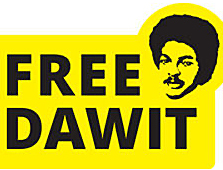 Don´t weaken our voice for Drug prevention. We strongly encourage the city of Stockholm to remain in European Cities Against Drugs. 20 International Drug prevention leaders writes an Open letter to the Mayor of Stockholm Karin Wanngård and two deputy mayors.
Don´t weaken our voice for Drug prevention. We strongly encourage the city of Stockholm to remain in European Cities Against Drugs. 20 International Drug prevention leaders writes an Open letter to the Mayor of Stockholm Karin Wanngård and two deputy mayors.
Open letter to:
•Karin Wanngård – Mayor of Stockholm
•Åsa Lindhagen – Chair, Committee of Social welfare, Stockholm
•Sara Pettigrew – Board member of ECAD, representing Stockholm
Regarding Stockholm’s discussion to leave ECAD
The signatories of this letter are concerned over the fact that Stockholm is considering leaving European Cities Against Drugs (ECAD), an organization it founded. We have been informed that one of the reasons for this potential withdrawal is concern that one of the reasons for this potential withdrawal is concern that ECAD has lost its importance internationally.
Let us provide reflections on ECAD from our international perspective which stems from nations around the world.
ECAD is an important global voice for drug prevention. Some argue that prevention does not work, or think that instead of investing in prevention efforts we should put more of our limited resources on mitigating the effects of drugs. However, by being present on the international drug policy stage, ECAD has provided the world with clear examples of effective prevention from its member cities, showing that prevention does indeed work. Prevention gets at the root of the global drug problem by preventing and even delaying initiation to drug use, bringing tremendous cost savings to communities and nations worldwide. For these reasons it is of the utmost importance that we invest in prevention and that ECAD continue to lead on this front in the international debate as there are too few members of the civil society that can show good examples on a community level.
ECAD has also played a considerable role in shaping the debate about the roles of treatment and the criminal justice system in drug policy. Drug policy is not a choice between the systems of treatment and criminal justice; instead we must find ways to effectively use these two systems together that reduce drug use, increase access to and completion of drug treatment and limit incarceration.
ECAD has been instrumental in identifying and promoting examples of how we can use the criminal justice system as a tool to promote and reinforce both prevention and treatment. Once again there are many useful examples of such effective policies and programs implemented at the local level from the ECAD members that must be shared on a global platform.
Finally, we want to emphasize that ECAD plays a critical role in the fight against the commercialization of cannabis which is financially backed by a powerful and growing cannabis industry. In the United States, four states and the District of Columbia have legalized cannabis for recreational uses. In November, California and four other states will vote on similar legalization measures. We also see policy shifts in Europe moving in the same direction. For example in the Netherlands the parliament is currently discussing legalizing the production of cannabis. The outcome of the upcoming state-based initiatives in the US will influence the European cities.
We strongly encourage Stockholm to remain in ECAD. Withdrawing from ECAD would cripple the organization and directly limit the ability of ECAD to work against the commercialization of cannabis and other drugs on the European market.
ECAD builds on and promotes the successful extension of the Swedish drug restrictive policy that links the criminal justice system and health care and that seldom uses incarceration.
(1 States voting on the legalization of cannabis for recreational uses include: Arizona, Maine, Massachusetts, and Nevada. An additional four states will vote on measures related to the legalization of cannabis for medical uses include Arkansas, Florida, Montana and North Dakota.)
Sincerely Yours,
Robert L. DuPont – MD, President, Institute for Behavior and Health, Former Director, National Institute on Drugs Abuse, USA
Linda Nilsson – Global voice of prevention, Civil Society Task Force for UNGASS 2016
Sven-Olov Carlsson – International President, World Federation Against Drugs
Boro Goic – Chairman, Recovered Users Network
Asia Ashraf – Hubert H. Humphrey Alumni, Head of Psychology Department and Director Rehabilitation, Sunny Trust, Pakistan
Mike Sabin – Former Member of Parliament, New Zealand
Jo Baxter – Executive Director, Drug Free Australia, Australia
Solomon Rataemane – Professor, Head Department of Psychiatry, Sefako Makgatho Health Sciences University (SMU), South Africa
Jon Sigfusson – Director, Youth in Europe – A Drug Prevention Program, Iceland
Inga Dora – CEO, Icelandic Centre for Social Research and Analysis, Iceland
Bertha K Madras – PhD, Professor, Dept. of Psychiatry, McLean Hospital, Harvard Medical School, USA
Carmen Fernandez – General Director, Centros de Integracion Juvenil, A.C., Mexico
Mina Gerhardsen – Secretary General, Norwegian Policy Network on Alcohol and Drugs, Norway
Stig-Erik Sørheim – Chair EURAD – A network for prevention, treatment and recovery, Global coordinator Drug Policy Futures
Hans Lundborg – Ambassador, Former Chair of the Commission on Narcotic Drugs, Sweden
Antonio Maria Costa – Former Executive Director, United Nations Office on Drugs and Crime
Kevin A. Sabet – Ph.D., President, Smart Approaches to Marijuana, Director, Drug Policy Institute, University of Florida, President, Policy Solutions Group, USA
Neil McKeganey – Ph.D., Director, Centre for Substance Use Disorder, UK
Patrick J. Kennedy – Former U.S. Representative and Honorary Advisor, Smart Approaches to Marijuana, USA
Yvonne Thunell – Chairman, Mentor International, Mentor Sverige, Sweden




